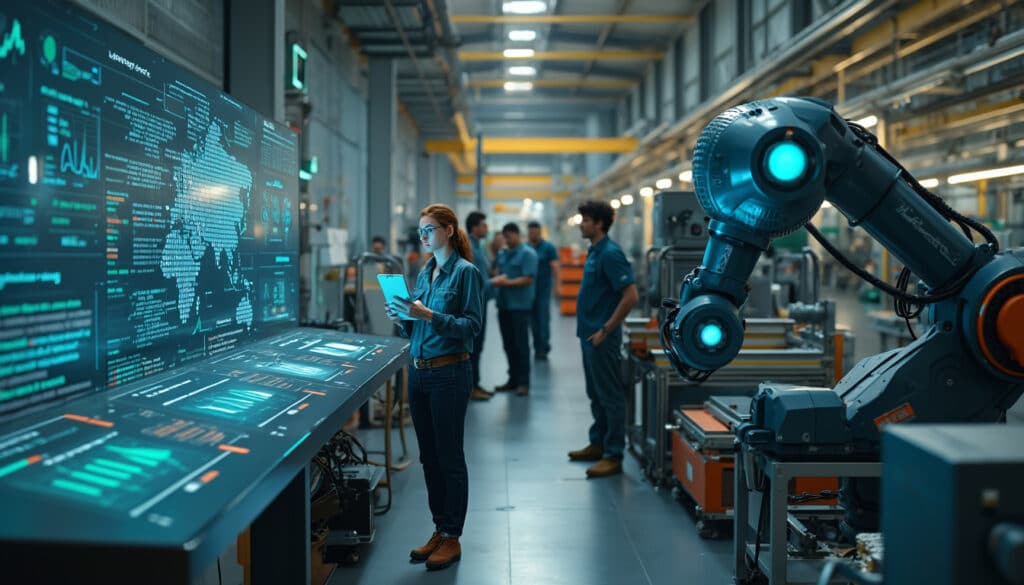The industry 4.0 market is experiencing rapid expansion, driven by an unprecedented wave of automation and connectivity. By 2030, this sector could exceed 305 billion USD, reflecting an impressive growth rate of over 26% per year. At the heart of this fourth industrial revolution are advanced technologies such as the Internet of Things and real-time data analytics, radically transforming production processes. Companies that embrace these innovations are better equipped to optimize their productivity while anticipating the changing needs of the global market through informed and agile decision-making.
The growth of the industry 4.0 market is a crucial driver of the digital transformation of manufacturing industries. Driven by automation, connectivity, and data analytics, this technological revolution is redefining industrial landscapes. Through the integration of smart machines and connected systems, companies can make real-time decisions, thereby increasing their productivity and efficiency. Industry 4.0 not only boosts production but also transforms how companies approach the supply chain, opening considerable growth opportunities up to 2030.

Table des matières
Togglethe advancements of automation in industry 4.0
Industry 4.0 is revolutionizing the industrial world with its shift towards automation. Companies are adopting robotic systems capable of making real-time decisions, improving productivity and reducing operating costs. Collaborative robots, or cobots, facilitate integration into the manufacturing process by working alongside humans. This human-machine cooperation elevates efficiency to an unprecedented level. Advanced technologies, such as artificial intelligence, play an essential role by enabling autonomous systems to learn and adapt without constant human intervention. Thus, production lines gain in responsiveness and flexibility.
impact of connectivity on the industrial market
Digital transformation is only complete through increased connectivity between machines, processes, and people. The Internet of Things (IoT) and wireless technologies create an interconnected network where every element exchanges valuable data. This seamless communication optimizes workflow and stimulates innovation. Smart factories leverage this flow of information to anticipate failures, avoid interruptions, and maintain optimal operation. Remote management becomes a reality, significantly reducing the need for physical presence on-site. These advancements push the boundaries of industry towards global connectivity where geographical barriers fade, paving the way for new economic opportunities.
data analysis, a major lever of performance
Data analysis is a fundamental pillar of industry 4.0. By collecting and analyzing a multitude of information, companies can anticipate trends and adjust their strategy in real-time. These data open new perspectives, allowing for accurate simulations and resource optimization. The use of intelligent tools transforms raw data into strategic decisions, thereby strengthening the competitive position of companies in the global market. Real-time processing of complex data not only improves product quality but also increases customer satisfaction by providing tailored solutions. This data-driven approach engenders an innovative dynamic, fostering agility and resilience in modern industry.





